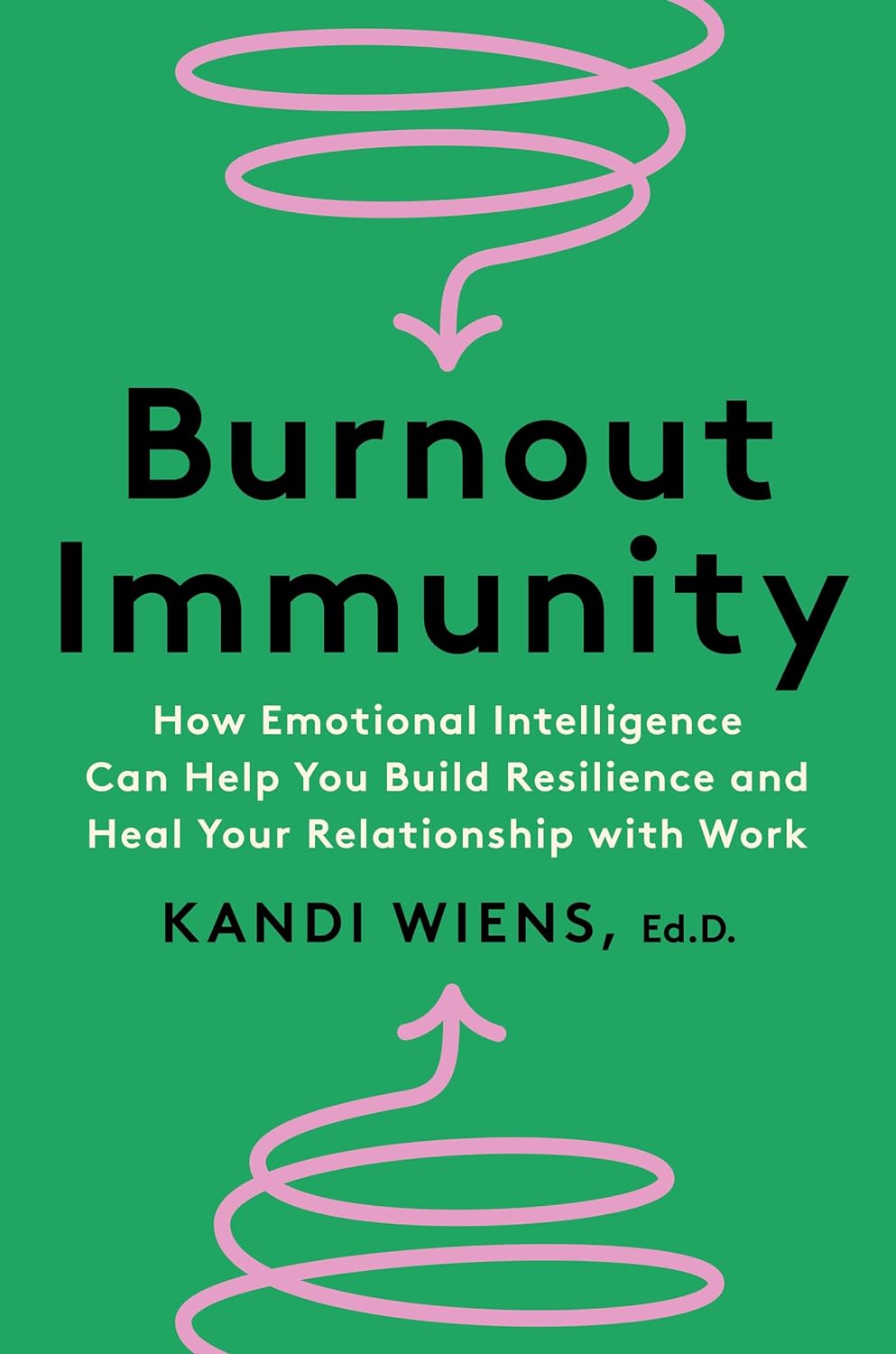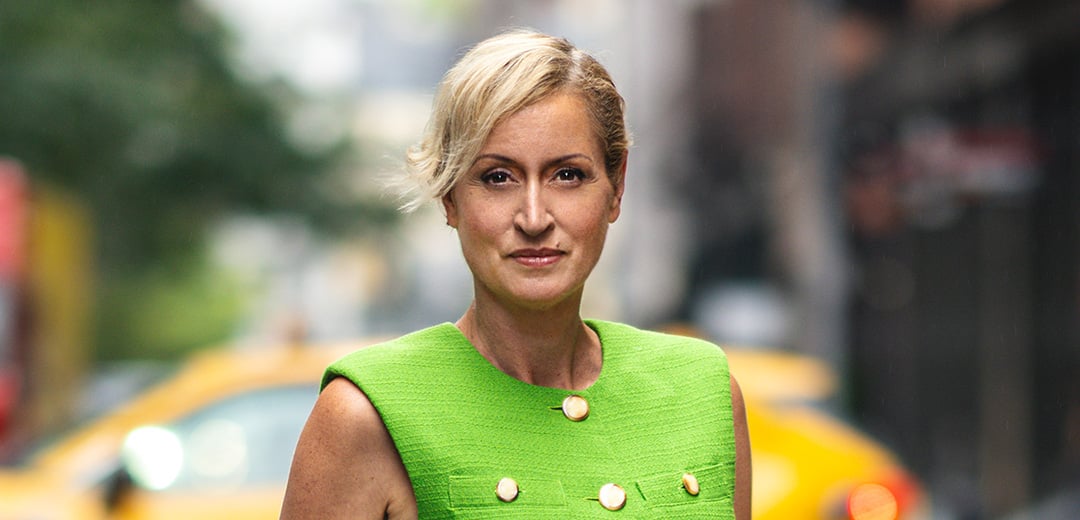UO alumna tackles the growing phenomenon of workplace burnout
By April Miller, UO Alumni Association associate director of marketing and communications
After experiencing a life-threatening health crisis, Kandi Wiens, MS ’96 (industrial relations), faced her burnout head on. Now her research on burnout immunity and emotional intelligence is helping others do the same. This Mental Health Awareness Month, discover her tangible advice on burnout prevention and recovery.
Fifteen years after graduating from the UO with her master’s degree, Kandi Wiens thought she had everything under control—balancing a demanding career as a management consultant while raising three children amidst many other life stressors.
That is, until a routine physical turned into a life-threatening health crisis. Her blood pressure reading was 200/110—a hypertensive emergency. Wiens’s doctor ordered her to go home and remain on bed rest for three days, giving her time to reflect on how she’d gotten to that stage of burnout without even realizing it.
“That scared the daylights out of me. It really was a hit-the-wall moment and forced me to take a hard look at my relationship with work and what I thought was healthy,” she said.
Wiens has always pushed herself hard to succeed—and it’s paid off. She grew up on an Indian reservation in eastern Montana, living below the poverty line for much of her childhood. As a first-generation undergraduate student at Montana State, she worked three jobs to support herself. She then enrolled in a master’s program in industrial relations through the UO Lundquist College of Business, where she took advantage of every opportunity to launch her career.
“One of the things I was absolutely blown away by in the UO Lundquist College of Business was that they brought in recruiters from a lot of companies to do on-campus interviews. From that, I had six job offers,” Wiens said. “I was shocked. I was not expecting that [for] little ol’ me from Montana. I thought I'd be lucky to get one job offer.”
After graduation, Wiens accepted a role with Portland-based health care consulting firm, Stockamp & Associates. As a management consultant, Wiens was highly engaged with her work, traveling often and earning multiple promotions.
“It was very much ‘I'm just going to achieve and drive myself and try to get promoted every two years.’ It was all about achieving the next goal. That was my focus,” she said.
Planning her pivot
While Wiens’s hard work and dedication had helped her achieve many personal and professional accomplishments, her hypertensive emergency in 2011 was a wakeup call that the pace wasn’t sustainable. She realized she was experiencing burnout—defined as a state of physical, emotional, and mental exhaustion caused by prolonged stress. She began seeking research and resources related to burnout and started to better understand the source of the anxiety and stress dreams that had been mounting.
Determined to make a change, Wiens spent time reflecting on her values and what a more healthy and balanced relationship with work could look like. She ultimately decided to scale down her corporate career and pursue a doctoral degree to research the very thing she had experienced—workplace burnout.
“I remember thinking about times in my life when I was really happy and, I remembered my time at Oregon,” Wiens said. “I am happy in the classroom, in a learning environment with my peers in a cohort. That coupled with a few other things were huge sources of inspiration for me to want to go back and get my doctorate."
It took time to plan her career pivot, though. Wiens’s family relied on her management consulting income, and it was two years before she could afford to go part-time at work and begin a doctoral program at the University of Pennsylvania.
“I knew I had to hold on to hope. I refused to give in to this feeling of ‘I'm stuck here forever,’ even though I felt that way a lot of times,” she said. “The moment we start feeling like a victim is the moment we stop being leaders in our own lives. I've always believed deeply that I am a leader in my own life. I got myself out of a poverty situation in Montana, and I was able to get into Oregon. I was able to get these job offers, and then eventually [get into] Penn. All of that was because of choices that I made. It was very proactive, and very much from a sense of empowerment.”
Emotional intelligence as a burnout antidote
After earning her doctor of education degree in 2016, Wiens joined the University of Pennsylvania Graduate School of Education as a senior fellow and director of the university’s medical education master’s program. There, she has interviewed hundreds of people across professions—focusing her research on how emotional intelligence promotes positive mental health and helps people become immune to burnout. In 2024, Wiens released her first book, Burnout Immunity: How Emotional Intelligence Can Help You Build Resilience and Heal Your Relationship with Work, compiling her years of research into a tangible guide for burnout prevention and recovery. The book, which became a USA Today bestseller in its first month of publication, shares five key strategies for burnout immunity—awareness, regulation, meaningful connections, outlook, and what Wiens calls the “3Rx prescription”—recover, reconnect, and reimagine.
In 2024, Wiens released her first book, Burnout Immunity: How Emotional Intelligence Can Help You Build Resilience and Heal Your Relationship with Work, compiling her years of research into a tangible guide for burnout prevention and recovery. The book, which became a USA Today bestseller in its first month of publication, shares five key strategies for burnout immunity—awareness, regulation, meaningful connections, outlook, and what Wiens calls the “3Rx prescription”—recover, reconnect, and reimagine.
“I can't tell you how critical having an awareness and understanding of ourselves is to learning how to manage our stress response and our nervous system,” Wiens said. “[And then] we need to take that awareness of what's going on with us physically, emotionally, mentally and care enough about ourselves to do something with that [information]. That's where we get into emotional, mental, and behavioral regulation practices.”
For Wiens, key regulation practices include exercise, resting when she needs to without guilt, and staying connected with people she cares about. She said making herself more resilient to burnout has benefitted not only her own well-being, but her family’s too.
“One of the things I try to teach people who go through my workshops is how to be a resilient role model. [I teach] how to do this work, so that you can protect yourself from burning out, but also recognizing that you are role modeling for everyone around you, including your kids.”
This summer, Wiens plans to launch a new study on hurry sickness, a behavior she describes as a close cousin of burnout. It involves a constant sense of urgency and rushing, and Wiens said primarily affects people with type A personalities who are very achievement driven.
“My goal with this research, like with burnout, is to learn from people who have figured it out . . . I want to find people who have struggled with [hurry sickness] maybe their whole lives but have learned how to keep it under control and use it as an advantage in their performance and in their well-being,” Wiens said. “I try to look at things really from a positive orientation in my research, which I’m really excited about because there are people out there doing it right who we can learn from.”



